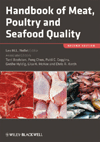WEB EXTRA: 2013 Processor of the Year
Q&A with Bill Lovette, president and CEO of Pilgrim's Pride

Andy Hanacek, editor-in-chief: Discuss the overall goal you have as President/CEO of Pilgrim’s moving forward. How have those goals been influenced by JBS’s corporate offices overall?
Lovette: Our vision at Pilgrim’s is to become the best-managed and most-respected company in our industry. This is wholly consistent with the mission of JBS, which is “to be the best in everything we do.” From the relationships with customers, growers, team members, shareholders [and] consumers, Pilgrim’s works hard every day to improve its business and be a consistent and reliable provider of great tasting products.
Our affiliation with JBS has created great value for all PPC stakeholders. First, through our shared-services agreement with JBS USA and our move into JBS USA headquarters in Greeley, we have reduced our SG&A spend significantly. For example, if you look at our SG&A spend in 2007 compared with last year — we have reduced this number by approximately one-half, while at the same time improving the quality of services and talent of our team. Through our affiliation with JBS USA, we achieve synergies in important service areas such as legal, treasury, IT, HR compliance, communications and other areas.
Also, JBS has a tremendous focus on creating value through export markets. When we joined JBS, we became a part of a huge global trade platform that allows us better access to key foreign markets. We also are able to leverage ocean-freight logistics and maximize shipping efficiencies, which allow us to get the right products to the right markets at the right time.
Hanacek: Things were bleak for Pilgrim’s for a while — I believe Cameron Bruett [head of sustainability and corporate communications, JBS,] mentioned during my visit to Live Oak that it wasn’t financial roses for a time — what has “saved” Pilgrim’s from outright disaster? How much of a drastic change were these things?
Lovette: During a very challenging year 2011, we determined that we needed to improve the capital structure of the company in order to better handle the inherent volatility associated with our business. We constructed a strategy to improve management of our working capital at all levels and reduce our debt to approximately $600-$800 million. We are on track to accomplish this, and by doing so, we will have more than adequate liquidity and cash to reinvest back into our business so we can continue to grow and play an important part in meeting growing global chicken demand now and in the future.
Hanacek: What types of changes have you seen since taking your current position at the helm of Pilgrim’s?
Lovette: Our new management team began this improvement process January 2011. Within four months, we implemented a new strategy and realigned management around it. A key theme of the strategy is to drive ownership and accountability deep in the organization.
There are three key pillars of the strategy:
One, become a valuable partner to key customers — i.e., better aligning our core competencies and resources around the needs of key customers to create joint value at a greater level. This part of the strategy is helping us grow sales, improve our mix — and ultimately [improve] profitability.
Two, relentless pursuit of operational excellence — by the end of 2013, we will have created financial improvement of well over $600 million in yield and plant cost improvements.
Three, growing value-added exports — we have targeted key foreign markets in which to grow value-added sales. We are focused on markets including Japan, Saudi Arabia, Jordan, Chile and Angola, just to name a few. We are utilizing JBS international sales offices and the company’s international network of in-country expertise and presence to gain better market knowledge and access. This strategy is helping us improve our sales mix, price impact and growth.
Editor's Note: To hear an earlier Q&A between Hanacek and Lovette at the 2013 Chicken Media Summit in April, click here.
Looking for a reprint of this article?
From high-res PDFs to custom plaques, order your copy today!









